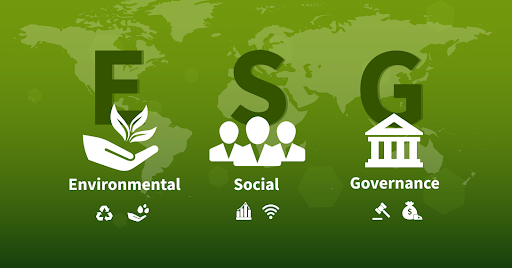In the current business landscape, transparency and accountability are crucial for maintaining stakeholder trust. ESG reporting software plays a transformative role in enhancing ESG reporting by improving engagement and ensuring corporate accountability. This blog examines how integrating ESG software can elevate stakeholder interactions and boost overall transparency.
The Evolution of ESG Reporting
Historically, ESG reporting was often a manual and fragmented process, leading to inaccuracies and delays. Today, ESG software represents a significant advancement, providing companies with the tools needed to streamline their reporting processes. This evolution is driven by the need for more accurate, timely, and accessible ESG data that can meet the demands of modern stakeholders.
Key Features Driving Enhanced Engagement
1. Real-Time Data Access for Immediate Insights
Modern ESG software offers real-time data access, enabling companies to provide up-to-date information to stakeholders. This immediacy enhances engagement by ensuring that stakeholders have access to the latest ESG metrics and developments. Real-time dashboards and alerts allow for timely communication of key information, helping stakeholders stay informed about the company’s ESG performance.
2. Interactive Platforms for Stakeholder Interaction
Engagement goes beyond simply providing information—it involves active dialogue. ESG software often includes interactive features such as feedback forms, surveys, and discussion forums. These tools facilitate direct communication between the company and its stakeholders, allowing for a more dynamic and responsive engagement process.
Interactive platforms also enable stakeholders to ask questions, provide feedback, and participate in discussions about the company’s ESG initiatives. This two-way communication fosters a deeper connection and demonstrates the company’s commitment to transparency and responsiveness.
3. Tailored Reporting to Meet Diverse Expectations
Different stakeholders have different information needs. ESG software addresses this by offering customisable reporting options. Companies can generate reports tailored to specific stakeholder groups, such as investors, regulators, or customers. This customisation ensures that each report provides relevant and impactful information, enhancing stakeholder engagement.
Customisable reporting features also allow companies to align their reports with various ESG frameworks and standards, ensuring compliance while addressing stakeholder interests.
Enhancing Accountability with ESG Reporting Software
1. Automated Compliance and Audit Trails
Accountability is reinforced through automated compliance features in ESG software. These tools ensure that reporting meets regulatory requirements and internal standards. Automated compliance checks and audit trails provide a transparent record of data handling and reporting processes, which can be crucial during audits or reviews.
By automating compliance, companies reduce the risk of errors and ensure that their ESG reports are accurate and consistent. This automation also simplifies the audit process, making it easier to verify compliance and address any issues that arise.
2. Benchmarking and Performance Tracking
To maintain accountability, companies must continuously monitor their ESG performance and compare it against established benchmarks. ESG software facilitates this by providing tools for performance tracking and benchmarking. Companies can measure their ESG achievements against industry standards and track progress over time.
Benchmarking features help identify areas for improvement and set realistic targets. By transparently sharing performance data with stakeholders, companies can demonstrate their commitment to meeting and exceeding ESG expectations.
3. Enhanced Risk Management Capabilities
Effective risk management is integral to accountability. ESG software enhances risk management by providing tools for identifying and assessing ESG-related risks. Real-time risk assessment and management features allow companies to proactively address potential issues before they escalate.
By integrating risk management capabilities into ESG reporting, companies can ensure that they are not only meeting current standards but also anticipating and mitigating future risks. This proactive approach to risk management builds trust with stakeholders and reinforces the company’s commitment to responsible practices.
Conclusion
Integrating ESG software into your reporting processes offers significant benefits for enhancing stakeholder engagement and accountability. By providing real-time data access, interactive platforms, and customisable reporting, ESG software improves communication and transparency with stakeholders. Additionally, features such as automated compliance, benchmarking, and risk management reinforce accountability and support responsible business practices.
Embracing ESG reporting software is a strategic move toward achieving greater transparency and fostering stronger relationships with stakeholders. As companies navigate the complexities of ESG reporting, leveraging advanced software solutions will be essential for maintaining trust and demonstrating a genuine commitment to sustainability and ethical practices.



